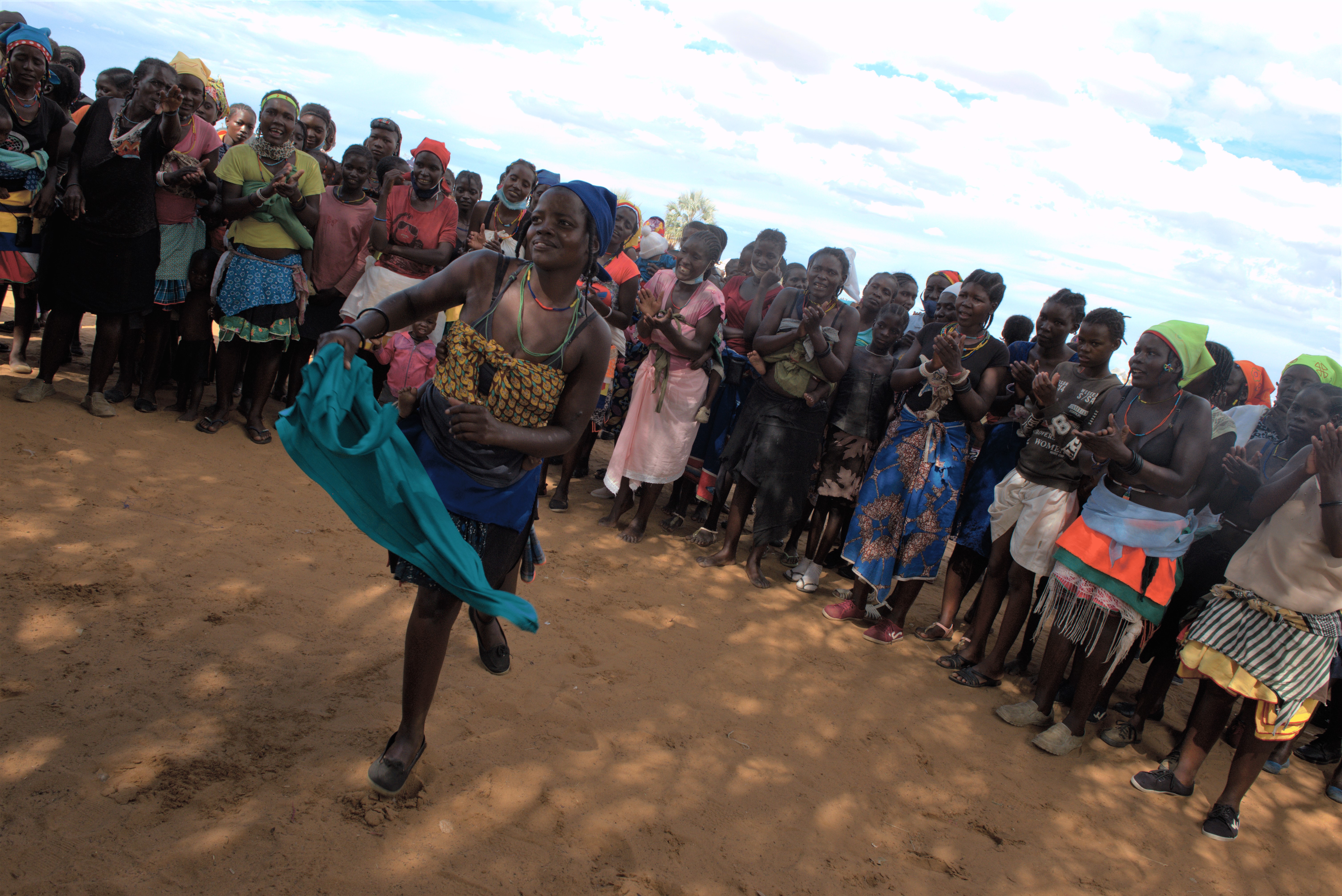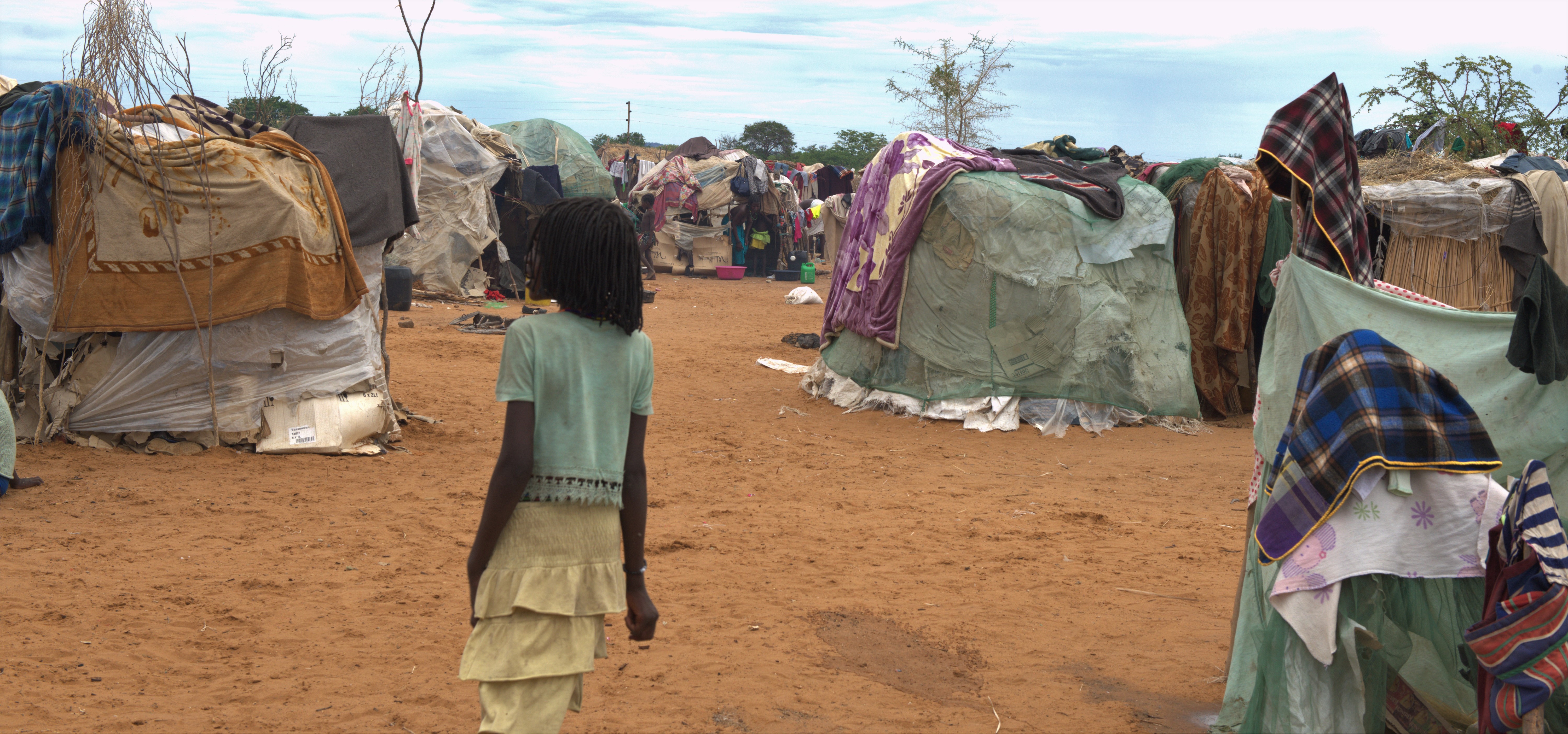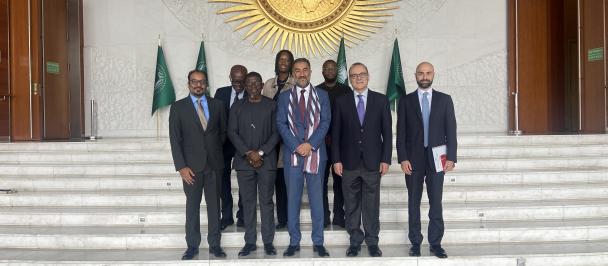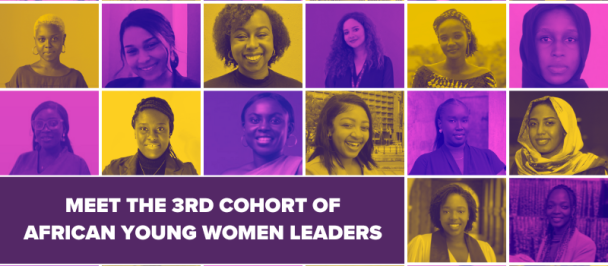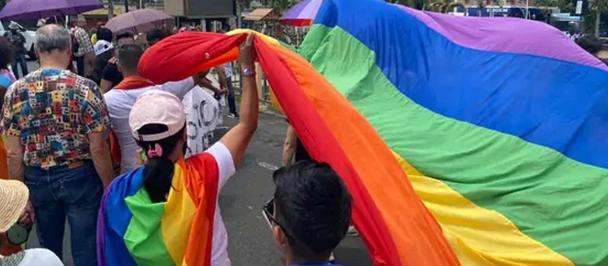--- Image caption ---
“The first people arrived in the evening. Close to dinner time.”
Narrates Loide Shitaleni, a community member of Memiabenkwe, a peri-urban neighborhood in Etunda, Northern Namibia.
The “people” she references, are the very first wave of climate migrants from Angola arriving in Northern Namibia in search of food. This was March 2021.
The informal settlement of over 3,400 migrants living in makeshift houses made of cardboard, plastic, and sticks, in a church ground in Etunda, had sprung up quickly by December 2021. The migrants fled Angola due to climate-induced shocks that destroyed their crops and livestock causing widespread hunger.
Loide is sitting on a white plastic chair in a deserted tent that an hour earlier had been the site of the official handover of livelihood products (tents, mattresses, food, blankets, etc.) provided by UNDP Namibia as part of the Rapid Response Covid-19 and Climate Shock Initiative funded by UNDP’s Africa Borderlands Centre.
More Angolan climate migrants kept coming. With a deep sense of compassion and commitment to help, Loide demonstrates that a community’s role as first responders to crises is vital.
In a soft-spoken voice, Loide recounts the day the first migrants arrived. A family of seven arrived at one of the neighborhood houses. They were drawn to the delicious smell of kapana (vegetables), fat cakes (fried dough) and small fish. An extra pot of soup was quickly started.
“I noticed the pot was too small. At that time, I had money, so I went and bought some bread and Sweet 8* to top up.”
Before long, that meal was done and the migrants waited expectantly for the next one. The community needed a plan. The Community Committee congregated and quickly hashed out a plan to mobilize donations for maize flour to make porridge. Priority was given to children, the elderly, and pregnant women.
“We contributed and bought 50kg of maize flour and make porridge. We didn’t count the people and we were just thinking of feeding them. We weren’t even thinking of counting them. After two weeks when we see more people are coming. We get a book and write the name of parents and how many children.”
This worked for a while before the community members realized that the number of migrants to feed was steadily growing. To document new arrivals and track numbers, a documentation system was established using ‘identity cards’ made from cardboard paper with a coded number, family name, and how many members were in the family. The card also doubled as a meal card.
As donations came pouring in, a food rationing system was established. Large families received 1 kg maize flour and 500g for small families. A volunteer schedule was established. Some volunteers stayed entire days.
Yet more migrants kept arriving daily. They would sleep in the open air in Memiabenkwe or under any shelter they could find, often without permission. With no WASH facilities available to the migrants, there was a danger of widespread disease.
At the suggestion of a Deacon, a member of the Community Committee, the migrants were moved to a local church ground. Once there, migrants began building shelter, walking for 15km to collect boxes and plastic sheets.
“The shelters helped. Many women were pregnant and the shelters gave us privacy during delivery. Before the shelters, we simply held up blankets while a woman delivered her baby.”
Loide estimates that over 40 babies were delivered at the camp.
“These are our people. We know them. We are one People. We speak a similar language and we understand each other. We have seen them come into Namibia for seasonal work but never like…this. The community wants to help but we can not manage. These materials will go a long way.”
UNDP Namibia as part of the Rapid Response Covid-19 and Climate Shock Initiative funded by UNDP’s Africa Borderlands Centre provided the migrants with tents, mattresses, food, blankets, and other essential items.
*Sweet 8 is a drink brand.

 Locations
Locations